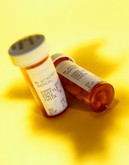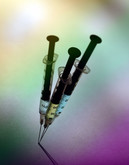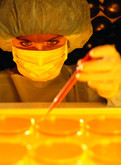Biosimilars
Campbell Alliance: how biotech should prepare for biosimilars
In the recently published article ‘Bracing for Biosimilars’ by Kuyler Doyle, Tony Lanzone and Fahti Khosrow-Shahi of management consultancy firm Campbell Alliance, some insight is given into what commercial and reimbursement decision makers for biotechnology companies should be doing to prepare for the arrival of biosimilars.
Modify Fc fucosylation and β-galactosylation for biobetter MAbs
In an article by Dr Claire Morgan and Dr Daryl Fernandes of Ludger, published in IPI of Autumn 2009, it is shown how both the original drug manufacturers and the designers of follow-on biologics could produce biobetter monoclonal antibodies (MAbs) through glycoengineering. (see also Ludger’s GTO-QbD: Defining glycovariant biobetter MAbs, When is a glycoengineered biobetter commercially better than a biosimilar? and Strategy and tools for building glycoengineered biobetter MAbs)
Design out NeuGc, Fab glycosylation for biobetter MAbs
In an article by Dr Claire Morgan and Dr Daryl Fernandes of Ludger, published in IPI of Autumn 2009, it is shown how both the original drug manufacturers and the designers of follow-on biologics could produce biobetter monoclonal antibodies (MAbs) through glycoengineering. (see also Ludger’s GTO-QbD: Defining glycovariant biobetter MAbs, When is a glycoengineered biobetter commercially better than a biosimilar? and Strategy and tools for building glycoengineered biobetter MAbs)
Design out Gal-α(1,3)-Gal for biobetter MAbs
In an article by Dr Claire Morgan and Dr Daryl Fernandes of Ludger, published in IPI of Autumn 2009, it is shown how both the original drug manufacturers and the designers of follow-on biologics could produce biobetter monoclonal antibodies (MAbs) through glycoengineering. (see also Ludger’s GTO-QbD: Defining glycovariant biobetter MAbs, When is a glycoengineered biobetter commercially better than a biosimilar? and Strategy and tools for building glycoengineered biobetter MAbs)
Strategy and tools for building glycoengineered biobetter MAbs
In an article by Dr Claire Morgan and Dr Daryl Fernandes of Ludger, published in IPI of Autumn 2009, it is shown how both the original drug manufacturers and the designers of follow-on biologics could produce biobetter monoclonal antibodies (MAbs) through glycoengineering. (see also Modify Fc fucosylation and β-galactosylation for biobetter MAbs, Design out NeuGc, Fab glycosylation for biobetter MAbs, Design out Gal-α(1,3)-Gal for biobetter MAbs, When is a glycoengineered biobetter commercially better than a biosimilar? and Ludger’s GTO-QbD: Defining glycovariant biobetter MAbs)
When is a glycoengineered biobetter commercially better than a biosimilar?
In an article by Dr Claire Morgan and Dr Daryl Fernandes of Ludger, published in IPI of Autumn 2009, it is shown how both the original drug manufacturers and the designers of follow-on biologics could produce biobetter monoclonal antibodies (MAbs) through glycoengineering. (see also Modify Fc fucosylation and β-galactosylation for biobetter MAbs, Design out NeuGc, Fab glycosylation for biobetter MAbs, Design out Gal-α(1,3)-Gal for biobetter MAbs, Strategy and tools for building glycoengineered biobetter MAbs and Ludger’s GTO-QbD: Defining glycovariant biobetter MAbs)
Ludger’s GTO-QbD: Defining glycovariant biobetter MAbs
One area of great interest to developers, copiers and improvers of therapeutic antibodies is glycosylation, since it can significantly influence the safety and efficacy profiles of the drug. In an article by Claire Morgan and Daryl Fernandes of Ludger published in IPI of Autumn 2009, it is shown how both the original drug manufacturers and the designers of follow-on biologics could produce biobetter antibodies through glycoengineering. In particular, they examine strategies for optimising both fragment antigen-binding (Fab) and fragment crystallisable (Fc) region glycosylation to produce monoclonal antibodies (MAbs) with improved clinical performance and better commercial profiles compared to existing drugs.
12 years exclusivity workable for patients; not anticompetitive
On IPWatchdog.com Gene Quinn distinguishes facts from fiction about biosimilars.
Minimal 12 years of biologicals data exclusivity required
As reported by Gene Quinn on IPWatchdog.com, for many months we have been hearing about the US government attempts to “reform” health care in the United States.
Teva seeks closer ties with Lonza on biosimilars
Biogenerics is a field that is becoming more and more important to Teva and the company seeks to deepen its existing ties in this area with Swiss company Lonza. Sources inform Globes that Teva President and CEO, Shlomo Yanay, CFO Eyal Desheh, and all the company’s board, flew to Switzerland for two days of meetings intended to extend the collaboration between the two companies.













